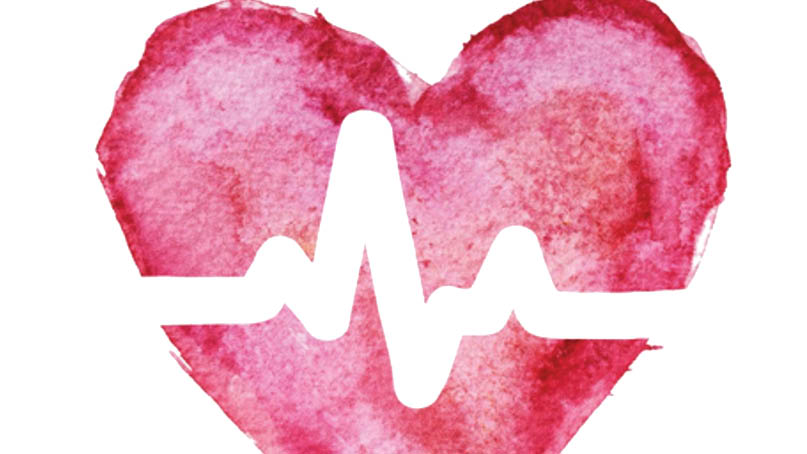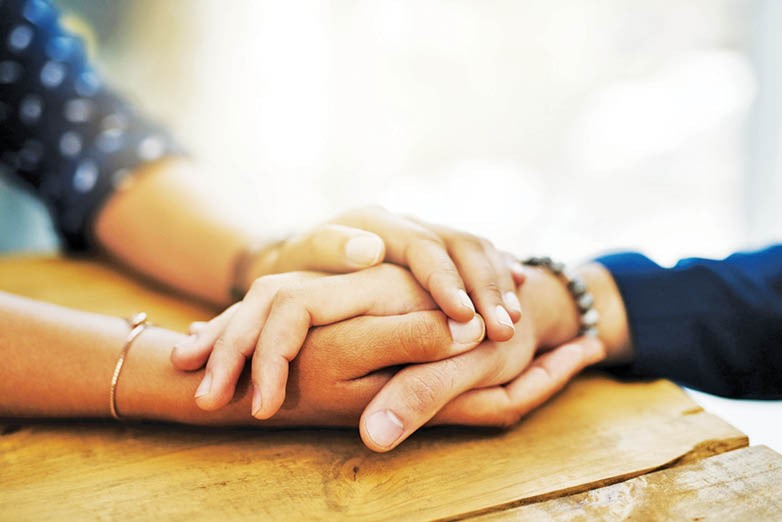 For all the talk about patient-centered care and a new health-care paradigm – which is most certainly the right way forward, the clinician-patient relationship has always remained relatively one-sided because of the nature of the profession itself. Essentially, patients come to clinicians for help, and the knowledge transfer, advice and guidance most often flows in one direction.
For all the talk about patient-centered care and a new health-care paradigm – which is most certainly the right way forward, the clinician-patient relationship has always remained relatively one-sided because of the nature of the profession itself. Essentially, patients come to clinicians for help, and the knowledge transfer, advice and guidance most often flows in one direction.
This doesn’t mean that clinicians aren’t constantly learning and being inspired by their patients too. One such patient, who taught me valuable lessons in compassion, was a lady I treated twenty years back at my hospital. During therapy, I tend to converse a lot with my patients. In one such conversation, she was discussing kindness and compassion. She said that she made sure that she did something for everyone who she found less fortunate than her. She never liked anyone who came for help return empty-handed – be it even a stranger on the street.
Since our training in clinical sciences focuses on being objective and practical in our reasonings, I was quick to retort, “It ain’t possible, we just cannot help everyone!” She instantly replied, “It’s possible with God! Can’t we pray for everyone?” That one statement left me speechless for a moment, as the profundity of her words sunk in. Everytime she saw anyone in pain or in need, she would pray for them. In the Mumbai local trains, when street urchins would come selling their wares, she’d say a silent prayer for them to have good sales, even if she weren’t making a purchase. This one conversation that day, changed a lot in me.
At first glance, there seems to be nothing new about valuing compassion. It’s an idea that’s been around for thousands of years, in both – religious and secular worlds. But perhaps it is the universality of compassion that has lulled us into underestimating its importance. The world of medicine is slowly being fascinated by this inborn human ability to feel for one another, and with good reason. Research has repeatedly proven that when caregivers show empathy and kindness, their patients heal faster. While medicine holds the power to cure, the care delivered with compassion speeds the recovery process, leading to better outcomes for patients and caregivers, alike.
Showing compassion and reassurance or listening actively calms patients, it lowers blood pressure and enables faster recuperation, reduced pain and shorter hospital stays. The benefits have been consistently demonstrated in cases ranging from traumatic injuries to even the common cold! Treating each other with kindness is a powerful way to influence health, and it’s reshaping the way we think about quality health care. Whether you’re on the giving or the receiving end, compassion delivers major, measurable effects – from reduced levels of stress and depression to faster healing.
At its essence, compassion is a gift of the spirit – one with the power to change lives. A truly compassionate person not only recognizes and feels for the suffering of others, but also tries to alleviate them selflessly. This is considered the highest form of compassion. Buddhists recognize it as loving-kindness, the powerful emotion which leads to liberation. Researchers from Stanford and Harvard are convinced that through practice, we can increase our own capacity for generosity and love, and in doing so, we benefit as both, individuals and as a society.
You already know it feels good to give, how donating to a cause you believe in or buying a simple ‘vada-pav’ for the urchin, can brighten your whole day. Brain scans of people in the act of giving have found that generous deeds activate the same reward centers in the brain, that pleasure-centers of food and drinks do. When these areas are stimulated, dopamine and other feel-good neuro-transmitters are released, resulting in pleasurable feelings ranging from contentment to euphoria. The mechanism of bio-psychology now explains what spiritual traditions have been teaching forever.
Compassion is a natural quality, yet you sometimes lose touch with it when your mind is disconnected from your heart. In the heart, you can embrace and accept all aspects of yourself and of the people around you. But when you dwell primarily in the reasoning mind, you often view other people as obstacles in the path of your goals, rather than fellow beings on the path. A few moments each day, of meditation and contemplation, will cultivate compassion and settle your awareness in the heart.
How do compassionate connections work? We are biologically wired for connection, which is necessary for our survival. Mirror neurons located in our brain, which fire when we perform a task or feel a particular emotion, also fire when we see others perform the same task or express the same emotion, perhaps facilitating empathy. That’s why a caregiver expressing confidence that a patient will get better, encourages that patient to synch up with those feelings and believe that he/she will surely heal.
And what’s more, our bodies produce ‘oxytocin’ – a molecule known as the ‘love hormone’ – which promotes bonding and closeness between people, starting with mothers and their newborn infants. When we hug, the release of oxytocin lowers blood pressure and reduces stress hormone levels – both of which are crucial to the healing process. So, let us resolve in this new orbit to use our human propensity to connect with compassion to heal the world!
Happy Nowruz! Saal Shaad Baad!
- The Healing Power Of ‘Shinrin-Yoku’ (Forest Bathing) - 28 December2024
- The Incomparable Health Benefits Of Plant-Based Diet - 30 November2024
- The Role Of Physiotherapy In Mental Health: A Holistic Approach - 28 September2024
